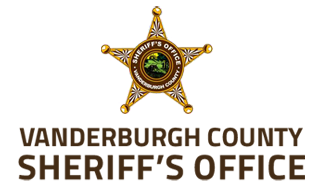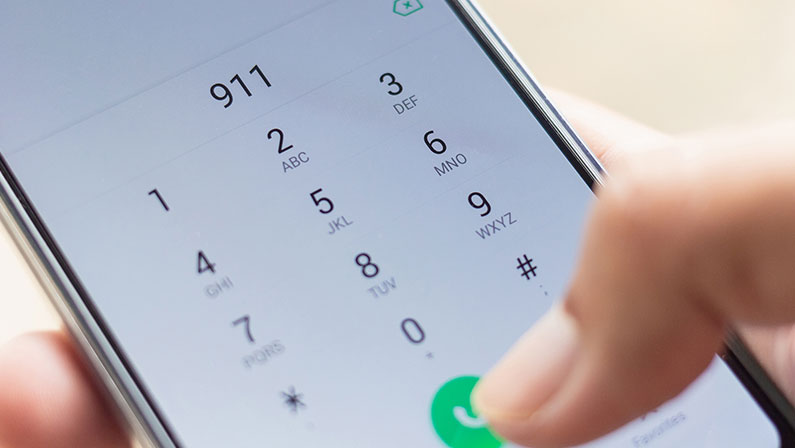The Evansville City/Vanderburgh County Joint Department of Central Dispatch is the Primary PSAP (Public Safety Answering Point) for all of Evansville and Vanderburgh County. We take 911 calls from regular telephone (wireline) customers and from cellular phone users in the area.
We dispatch the Evansville Police Department and Vanderburgh County Sheriff’s Office, as well as the Evansville Fire Department and five suburban fire departments in Vanderburgh County including Scott Township, McCutchanville, Knight Township, Perry Township, and German Township. We also occasionally handle radio traffic with various other cities, counties, states, and federal agencies.
If you need emergency medical assistance, your 911 call will be connected to an AMR (American Medical Response) dispatcher and they will dispatch the ambulance. AMR holds the ambulance contract for Evansville and Vanderburgh counties with the exception of Scott Township.
Reasons for Dialing 911:
- When a crime is in progress
- When you or someone else is in danger
- When you need an ambulance
- When you need a fire truck
- When you are in an accident
Do not call 911
- When there is a power outage
- If you want to find out if someone has been arrested or if they are in jail
- When you want to know what time it is
- For general information or a phone number
- When you are curious why there is a police officer or ambulance at your neighbor’s house or in your neighborhood
Please remember:
- Those who are hard of hearing and/or speech impaired can call 911 using TDD.
- If 911 is dialed by accident, stay on the line and advise the operator that the number has been dialed by mistake. Officers are dispatched to all 911 calls until the operator can verify that there is not an emergency.
- If possible, have a pen and paper ready when you dial 911. Your complaint might be one that must be referred to another department or agency.
What happens when you call 911?
- 911 Dispatchers enters the information you give into a computer.
- The computer-aided dispatch system assigns a priority to the call based on the type of call (burglary, shooting, etc.). Additional information you give can affect the priority.
- A dispatcher radios the information to units responding to the call.
- Additional information from you is sent to officers either by radio or computer.
Tips for Calling 911
- Stay calm. Speak clearly. Emergency units (deputies, police officers, fire, or ambulance) rely on the information you give to get to you as soon as possible and to be able to help you.
- Give your address and phone number. Many 911 systems automatically display your address when you dial 911, but most cellular phones do not. We also will not receive address information for callers who call our 10-digit number. Your address is vital information and address verification is crucial. We cannot help you if we don’t know where you are.
- Quickly and briefly describe your problem. As soon as we know what you need, we will know who (police, ambulance, or fire) to send to help you. Get to the point as soon as possible.
- Describe yourself. Tell the call taker where you are and what you look like, including what you are wearing. We want officers who are arriving on the scene to know who they can contact and that you are not the suspect.
- Listen to the 911 Dispatcher. Answer their questions and follow any instructions. Remain on the line until the dispatcher says it is okay for you to hang up.
- Allow the operator to ask the necessary questions. 911 operators are trained to ask particular questions according to the nature of the incoming call. These questions will not delay the emergency personnel from being sent to your location. While the operator is asking the caller questions, there is another dispatcher in the same room sending the appropriate emergency response when the incoming call is an emergency call.
- When you are calling 911 for a crime or incident in-progress, stay on the line with the operator if possible, unless doing so will place you in danger. Do not say “send the police” and hang up. Staying on the line and answering questions as the crime/incident progresses will allow the operator to give the responding emergency personnel updated information as they are en route to the location.
- Be prepared to describe the persons involved in any incident. This includes their race, sex, age, height and weight, hair color, clothing description, and if they had a hat, glasses, or facial hair. Be prepared to describe any vehicles involved in the incident. This includes the color, year, make, model, and type of vehicle (sedan, pickup, SUV, van, tanker truck, flatbed, etc.) and which direction the vehicle is going.
- All 911 calls are prioritized and the most serious are dispatched first. Calls are not dispatched on a first-come/first-serve basis.
Speaking With Kids About 911
When teaching children to dial 911, do not refer to the number as 9-11 (nine-eleven). There is no 11 (eleven) button on the dialing pad and this can cause confusion. Make sure your kids understand that calling 911 is not a joke or a funny prank. In some cities, officials estimate that as much as 75% of the calls made to 911 are non-emergency calls.
Kids also need to know the specifics about what an emergency is. Asking them questions like, “What would you do if we had a fire in our house?” or “What would you do if you saw someone trying to break in?” gives you a chance to discuss what constitutes an emergency and what to do if one occurs. Role-playing is an especially good way to address various emergency scenarios and give your kids the confidence they’ll need to handle them.
For younger children, it might also help to talk about who the emergency workers are in your community (police officers, firefighters, paramedics, doctors, nurses) and what kinds of things they do to help people who are in trouble. This will clarify not only what types of emergencies can occur, but also who can help.
Stress that whenever an unnecessary call is made to 911, it can delay a response to someone who actually needs it. Most areas now have what is called enhanced 911, which enables a call to be traced to the location from which it was made. So if someone dials 911 as a prank, emergency personnel could be dispatched directly to that location. Not only could this mean life or death for someone having a real emergency on the other side of town, it also means that it’s very likely the prank caller will be caught and punished.
Calling 911 from a Wireless Phone
In most areas of North America, most citizens have basic or enhanced 911 services from their landline, or wireline, phones in their homes or workplaces. Basic 911 means that when the three-digit number is dialed, a call taker/dispatcher in the local public safety answering point (PSAP), or 911 centers, answers the call. The emergency and its location are communicated by voice between the caller and the call taker. In areas serviced by Enhanced 911 (E911), the local 911 center has equipment and database information that allows the call taker to see the caller’s phone number and address on a display. This lets them quickly dispatch emergency help, even if the caller is unable to communicate where they are or what the emergency is. Evansville/Vanderburgh County 911 has Enhanced 911 service.
However, when 911 calls are made from wireless (cellular) phones, the enhanced 911 is currently not capable of giving the location you are calling from and the caller will have to provide this information. If the call taker doesn’t receive the callback phone number or the location of the caller, the call may not be routed to the closest 911 center. This presents life threatening problems due to lost response time, if callers are unable to speak or don’t know where they are, or if they don’t know their wireless phone callback number and the call is dropped.
When calling 911 from a cell phone, be prepared to give the operator your location and callback number. Visible landmarks, nearby businesses, and highway/interstate mile markers can be good tools for pinpointing your locations.
Be Prepared to tell the Dispatcher:
- The location of the emergency
- Your cell phone number
- What the emergency is and what type of assistance is needed
Remember:
- Stay calm and speak clearly!
- Do not hang up until the 911 Dispatcher has obtained all of the information that is needed.
- Since you are calling from a cell phone, your call may be disconnected if the signal is lost. Be sure to call back if you are cut off.
- When calling 911 on a cellular phone, be sure to stop if you are in a moving vehicle. It is difficult to obtain all of the information needed if you are getting further from the emergency.
- Your call may need to be transferred to another agency.
- Cellular phone users should read your cell phone manual and learn how to lock your cell phone keypad. Locking the keypad will prevent the numbers on your cell phone from being depressed when in your pocket or purse. Most cell phones will dial 911 when any button on the keypad becomes depressed and held. Locking the keypad can prevent many unnecessary false calls from being made to 911.


